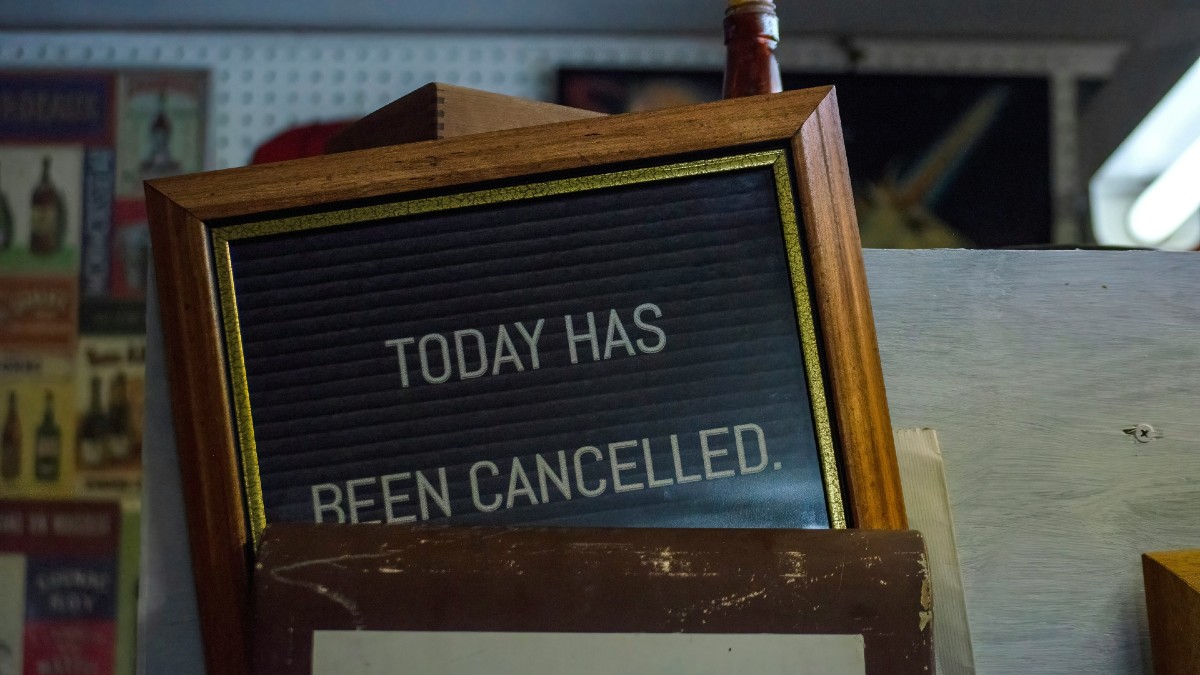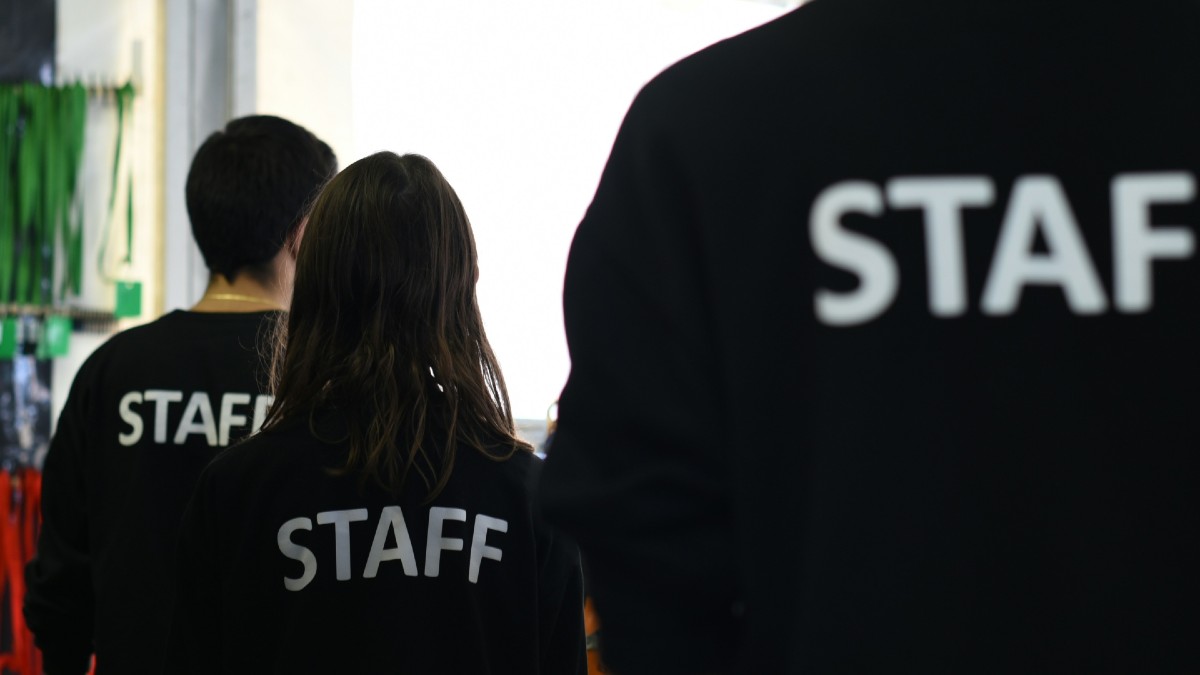
Written by: Cara Tirona
December 9, 2024
The event industry is poised for significant changes in 2025. As technology advances and societal expectations evolve, event planners must stay ahead of the curve to deliver successful and impactful events. Whether you’re organising corporate conferences, social gatherings, or large-scale festivals, understanding the upcoming trends and preparing for the challenges of 2025 will be crucial. In this blog, we’ll explore the key trends shaping the event industry in 2025, offering insights and strategies to help you plan ahead and stay competitive.
The Future of Event Planning: Key Trends to Watch
The event industry is entering a new era, with emerging trends that will reshape how events are planned and executed.
Sustainability and Eco-Conscious Events
As awareness around climate change and sustainability grows, event planners are increasingly being held accountable for their environmental impact. Events in 2025 are expected to prioritise sustainable practices, from sourcing eco-friendly materials for decorations to choosing venues that implement energy-efficient technologies. Furthermore, zero-waste initiatives will take centre stage, encouraging attendees to participate in reducing waste through reusable items and digital materials. As consumers seek brands that align with their values, prioritising sustainability in events will not only be a trend but a necessity.
As environmental awareness continues to rise, sustainability will undoubtedly shape the event industry landscape in 2025. Organisers will increasingly prioritise eco-friendly practices, from minimising waste to reducing carbon footprints. This trend will extend not only to venue selection and transportation but also to catering, materials, and promotional products.
Hybrid and Virtual Innovations
One of the most notable shifts in the event industry is the rise of hybrid and virtual events. While the world continues to embrace in-person events, the convenience and accessibility of virtual participation will remain a vital component. In 2025, we expect to see even more sophisticated platforms that integrate augmented reality (AR) and virtual reality (VR) to create immersive experiences for both in-person and online attendees. This hybrid model not only broadens audience reach but also allows for a more inclusive environment, accommodating those who may not be able to travel or physically attend. Event professionals will need to adapt their skill sets to effectively manage these platforms, ensuring that both live and virtual attendees can engage meaningfully.

Personalisation and Tailored Experiences
In an age where customisation is key, event organisers will increasingly focus on delivering personalised experiences.
By harnessing data analytics and participant feedback, planners will be able to curate unique agendas and tailor content that resonates with the interests and needs of individual attendees. From personalised invitations to custom itineraries, the ability to segment audiences and provide bespoke experiences will be at the forefront of event planning in 2025. For instance, utilising AI-driven tools to analyse attendee preferences will allow organisers to recommend specific sessions or networking opportunities, ensuring guests feel valued and engaged throughout the event.
Moreover, the trend of personalisation will extend to food and beverage offerings. Attendees are becoming increasingly conscious of dietary restrictions and preferences, prompting event planners to incorporate a wider array of options— from gluten-free and vegan meals to local gourmet selections. By offering custom dining experiences, organisers can elevate the overall event satisfaction, encouraging attendees to share their positive experiences on social media and thus amplifying event visibility.
The 5 C’s Of Event Management That Will Help You Host Like A Pro
Technology Integration and Innovation
As technology continues to evolve, its role in the event industry will become increasingly pivotal. By 2025, we can anticipate the integration of smart technologies such as artificial intelligence, machine learning, and Internet of Things (IoT) devices to enhance the planning process and improve attendee experiences. Event apps will likely feature real-time updates, interactive venue maps, and personalised itineraries that adapt to attendees' preferences and schedules. Attendees will be able to access agendas, receive notifications about upcoming sessions, and even connect with other participants through these advanced platforms.
Virtual and Augmented Reality Experiences
The use of virtual reality (VR) and augmented reality (AR) will also rise significantly in 2025, providing immersive experiences for attendees both on-site and remotely. VR can create engaging environments that transport users to different locations or scenarios, generating excitement and connection, regardless of physical presence. For example, brands could use virtual showrooms or experiences that allow participants to interact with products in ways that were previously impossible.
AR applications could enhance live event experiences by providing real-time data, entertainment, or gamification elements superimposed over the physical environment. Imagine scanning a QR code at your seat to access augmented content related to a speaker’s presentation or using AR to navigate through complex venues without difficulty. This innovative technology will encourage attendees to interact more deeply with content and even each other, creating memorable experiences.

Advanced Analytics and AI-Powered Insights
Data analytics will play a crucial role in shaping the future of events. Event planners will leverage AI-powered insights to gather and interpret attendee feedback in real time, allowing for adjustments and enhancements to ongoing events. This responsive approach will enable planners to modify sessions, tweak schedules, and personalise experiences on-the-fly, ultimately leading to higher satisfaction rates.
In addition, advanced analytics will help identify trends and preferences among attendees, allowing for smarter decision-making in future event planning. By utilising predictive analytics, planners can forecast attendance patterns, gauge interest in specific topics, and allocate resources more efficiently. This data-driven strategy will revolutionise how events are marketed and executed, minimising waste and maximising engagement.
Moreover, the integration of machine learning algorithms will allow event organisers to segment audiences more effectively. By understanding different attendee demographics, behaviours, and needs, planners can tailor content, create targeted marketing campaigns, and design unique experiences for distinct audience segments. This level of customisation will create stronger connections between attendees and the brand, facilitating a more personalised event atmosphere.
Event Management Strategies for 2025: Adapting to New Challenges
To thrive in 2025, event planners must adapt their strategies to meet new challenges and expectations. The landscape of event planning is continually shifting, influenced by technology, audience preferences, and global circumstances. Here are some key strategies to consider:
Hybrid Event Models
As the pandemic reshaped the event industry, hybrid models have emerged as the go-to solution for maximising audience reach. In 2025, event planners will need to refine these hybrid experiences, ensuring seamless integration between physical and virtual components. This involves investing in robust technology to provide high-quality streaming, and interactive elements for online attendees, and ensuring equal engagement opportunities for both audiences.
Moreover, hybrid events will likely include innovative formats, such as virtual reality experiences or interactive online platforms that mimic in-person engagement, allowing participants to network and connect as if they were on-site. Understanding how to balance the needs of both audiences will be critical for successful event execution.

Sustainability and Eco-Friendly Practices
Environmental concerns are becoming increasingly prominent, and in 2025, sustainability will no longer be a secondary consideration but a primary focus in event planning. Event planners will need to adopt eco-friendly practices, including sourcing sustainable materials, reducing waste, and incorporating renewable energy sources into their events.
In an era where consumers are more environmentally conscious than ever, the demand for sustainable sourcing will define the choices event planners make. This means selecting vendors who prioritise eco-friendly production methods, utilising locally sourced products, and offering organic catering options. Event organisers will likely collaborate with suppliers who have transparent sustainability practices, ensuring that everything from decorative elements to food services aligns with eco-friendly standards. Sustainable events will also focus on minimising their carbon footprint by employing strategies such as reducing travel needs through local venue selections and hybrid event strategies. Planners will leverage technology to create digital event materials, replacing printed brochures and handouts with apps and online resources.
Waste Reduction Initiatives
By 2025, the concept of "zero waste" events will gain traction across the industry. Planners will implement strategies to minimise waste, such as digitising materials to reduce paper usage, providing clear recycling and composting options, and working with venues that support waste management programs. An emphasis on reusable items, such as water stations and eco-friendly cutlery, will be essential to reducing the environmental footprint of events. Sustainable event planning will also call for innovative approaches to food and beverage service. Catering choices will lean towards bulk serving options to reduce individual packaging waste, and menus will prioritise plant-based offerings, reflecting a growing trend toward vegetarian and vegan diets. Leftover food will be managed more effectively through partnerships with local charities to donate uneaten meals, ensuring that food waste is kept to a minimum.

Energy Efficient Solutions
Events in 2025 will increasingly rely on renewable energy sources. Planners will consider venues that utilise solar power or energy-efficient technologies to minimise their reliance on traditional fuels. The use of LED lighting and energy-efficient audiovisual equipment will further contribute to the overall sustainability of events. Moreover, options for integrating smart energy management systems will allow for better monitoring and control of energy consumption during events. This could include sensors that adjust lighting and temperature based on occupancy, ensuring that energy is only used when necessary.
Exploring New Event Formats
Experimenting with new event formats, such as pop-up events or immersive experiences, will keep your events fresh and exciting. In 2025, the traditional venue-centric model will evolve, allowing for greater flexibility and creativity in how and where events take place. Here are some trends driving this transformation:
Pop-Up Events
Pop-up events, characterised by their temporary nature, will become increasingly popular as brands look for unique ways to engage customers. These events can pop up in unexpected locations, such as parks, rooftops, or even within existing retail spaces. Their transient nature creates a sense of urgency and exclusivity, encouraging attendees to participate before it's too late. Brands will utilise interactive elements, limited edition offerings, and community-oriented themes to enhance the overall experience, making attendees feel connected to the brand in a fresh way.
Immersive Experiences
As the boundaries between the physical and digital worlds continue to blur, immersive experiences will become a cornerstone of event planning in 2025. These events engage attendees on a deeper level, leveraging technology and creativity to create memorable and impactful experiences. It is anticipated that augmented reality (AR) and virtual reality (VR) will be extensively used to enhance attendee interaction. These technologies can transport participants to entirely new environments or scenarios, allowing them to experience products and services in innovative ways. Imagine a travel agency hosting a VR experience that allows potential customers to "visit" destinations before booking. Such immersive tools foster connection, enabling brands to provide personalised experiences that resonate more profoundly with attendees.

Leveraging Data for Decision-Making
As the event industry evolves, the role of data will become more crucial in shaping successful experiences. By 2025, planners will harness advanced analytics to derive actionable insights, enabling them to make informed decisions that enhance event performance and attendee satisfaction. Data-driven decision-making will be key to successful event planning. Analysing attendee data, engagement metrics, and feedback will help you tailor your events to meet audience needs.
Personalisation at Scale
With advances in technology and data analytics, event planners will be able to tailor experiences that resonate deeply with individual attendees. By leveraging attendee data, such as preferences and behavioural patterns, planners can create personalised agendas, recommend sessions or activities, and provide custom content. This level of personalisation will not only enhance attendee satisfaction but also drive engagement, leading to higher participant retention rates in future events.
Conclusion
2025 promises to be a transformative year for the event industry. By staying informed about the latest trends and adopting innovative strategies, you can ensure your events are not only successful but also memorable. As you plan ahead, consider how VenueNow can help you find the perfect venue to bring your event vision to life. With advanced search filters and expert support from Venue Consultants, VenueNow is your partner in creating exceptional events in 2025.
Looking for an event venue to hire?
VenueNow has you covered with over 2,000 venues across Australia ranging from large event spaces to small meeting rooms. Find your perfect venue for hire faster than anywhere else.
Follow us on social media to stay up to date with the latest news
Customers
Want to get in contact?
Call our support team on 1300 647 488 during business hours AEST.
Follow Us
© Copyright VenueNow 2026 | SPARE GROUP PTY LTD | ABN 22 607 830 302











